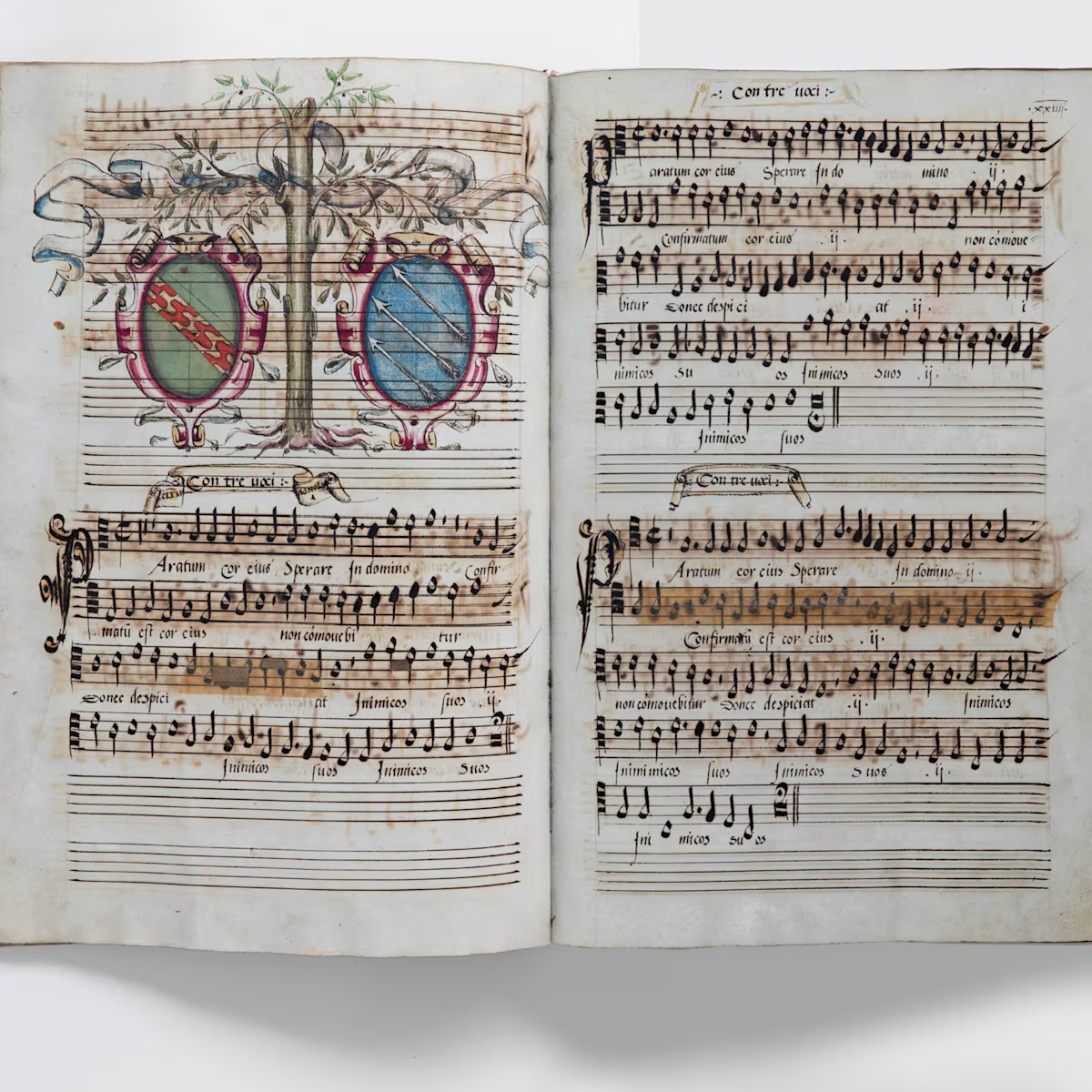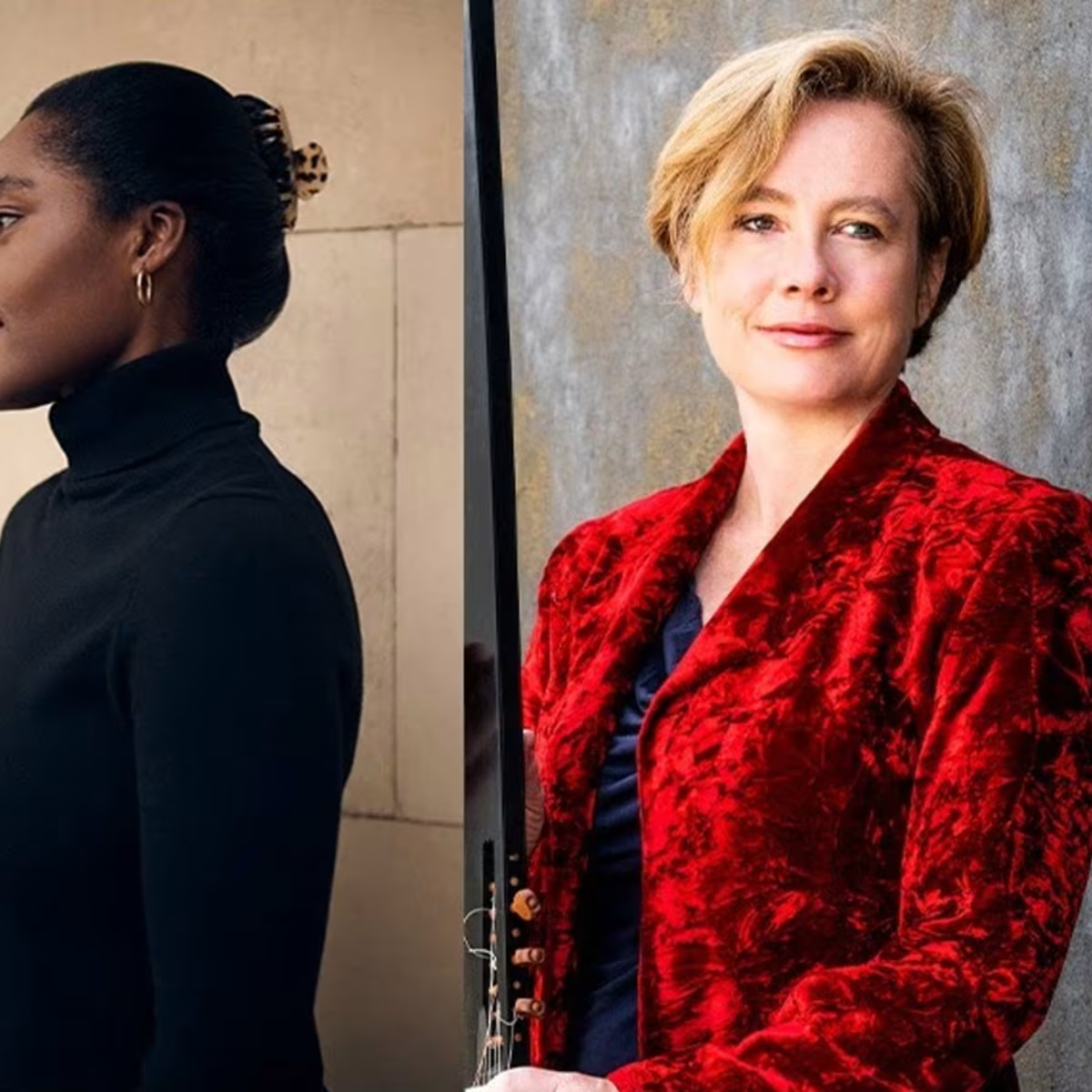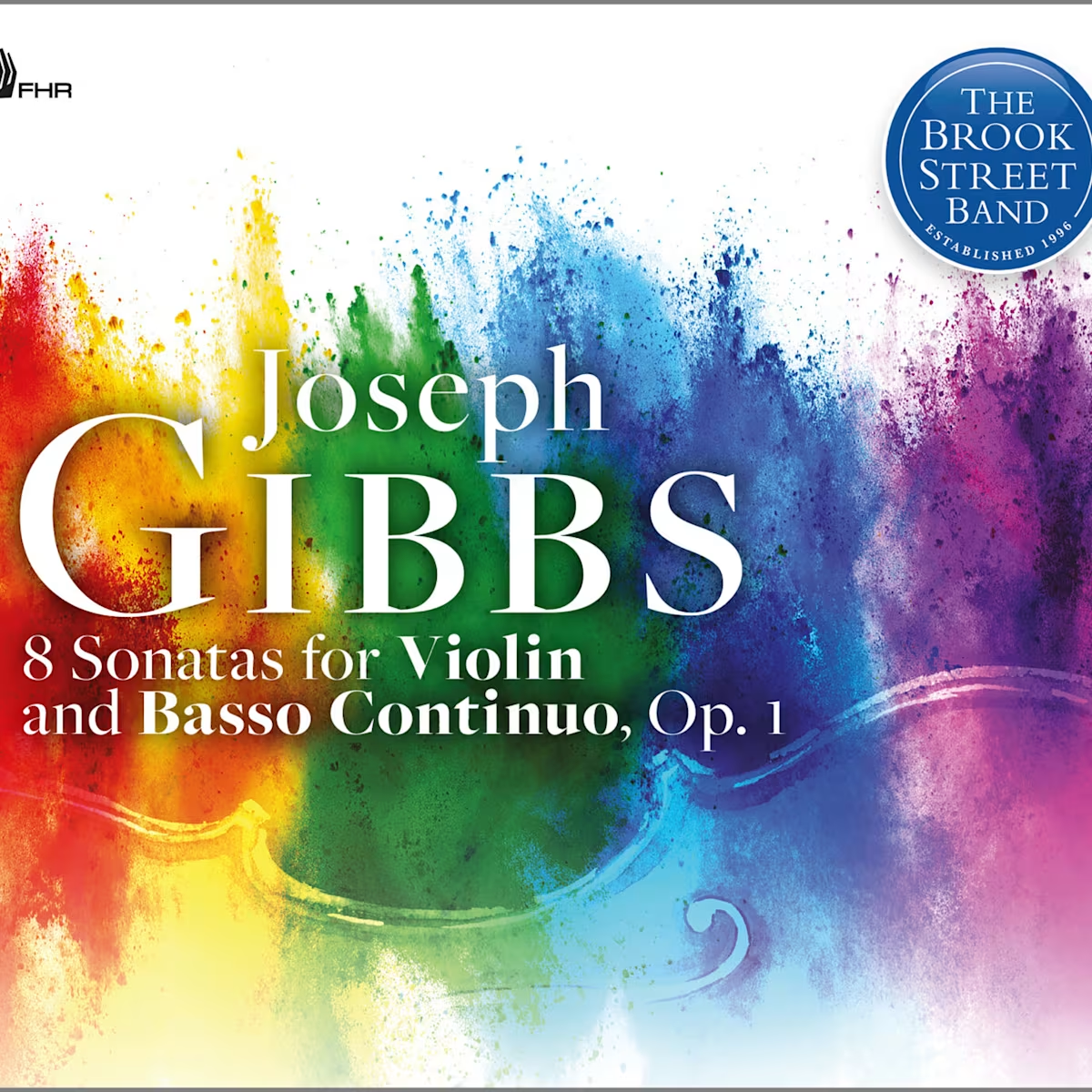Feature
Sarah Jeffery
Influence the world: the Team Recorder mastermind
Share this

Sarah Jeffery is one of the world’s foremost promoters of the recorder, and a passionate champion of contemporary music. She has commissioned and premiered dozens of contemporary works and is regularly found performing on stages and festivals across the globe. Off-stage, she is recognized as an expert on the instrument, appearing on the BBC, as well as being a regular feature on radio and television. For her efforts, she has received praise for “standing out from the established repertoire” and “fresh, surprising, and explosive” performances from Dutch NRC newspaper, and “the height of sonic and soundtrack cool, out there at the edges of compositional innovation and performative possibility” from BBC Radio 3. In 2022 she was appointed ‘Recorder Professor Specialising in Contemporary Music’ at the Royal College of Music in London, and is perhaps best known for her YouTube channel Team Recorder.
What is your earliest musical memory?
I think it was around age 5 … listening to the Moonlight Sonata on CD and being completely overwhelmed by the music, doing interpretive dance with my eyes closed around the living room. Most wonderful thing I’d ever heard. Now I see that in my daughter!
Could you describe in a few words what’s so special about early music concerts?
What I love is that early music has a really special creative input from the performers. You are so much closer to being an improviser, even a composer; with ornamentation, improvisation above a bassline, a big responsibility for everything from the instrumentation to structure, choice of temperaments; it makes each interpretation really really different. You have to be very involved. And in the audience you feel that coming from the stage!
What is the role of early music in today's society?
In my own students, I hope it brings people closer to their own creativity - a responsibility for making the music happen. In general the world would be a better place if everyone learned music.
Early music requires such a different way of listening; in some ways you have to appreciate the different aesthetic, different virtuosity that appears simple but is incredibly complex underneath. It asks something different from the listener - concentration, open-mindedness. And it’s incredibly diverse! There’s so much to discover.
Do you have a lucky charm or ritual that you follow before important concerts?
No! Before a concert I’ll stretch, but no ritual. Many people say “toi toi toi” but some of my friends (when I worked with dancers - I’ve done a lot of music and dance - perhaps this is a dancer thing?) say “merde merde merde”! With ensembles we often have things we do, for example in my trio we group hug before a concert, but it’s not a ritual as such!
What would you do if you weren’t a musician?
I was planning to be a doctor until I was 17! I was very sensible, did science A Levels, but at the last minute I said to my mum: “all I want to do is play the recorder”. She said go for it! Which I did. But in an alternate universe I’m a doctor. I wanted to be Dana Scully from The X Files!
What is your greatest fear?
Sounds frivolous but I have a horrific phobia of balloons! All sudden loud noises: fireworks, dogs barking. I always have some earplugs with me.
What is your greatest extravagance?
Taylor Swift tickets… it’s worth it though. Apart from that, recorders!
What is your most treasured possession?
My recorders of course! My collection of instruments. As a recorder player you have numerous instruments, and a special relationship with the makers - some of them are hand-made, they can’t be reproduced. I don’t know how many I have. A good tree’s worth!
It used to be a long process to save up for each recorder, for example working long hours in an Irish pub! Buying the instrument is such an experience. You go to a music fair like LIFEM, you meet the makers, try all the instruments, it’s very involved, it really feels like it matters! Then you keep meeting them again and again, you have the recorder revoiced, serviced: you develop a relationship.

Is there a particularly special recorder that you have?
I have an Eagle recorder made by Adriana Breukink, a revolutionary Dutch recorder maker who sadly passed away recently. I went to her studio to interview her, to do a video about her recorders. She gifted me one of hers - hand-made. After having watched YouTube videos of me playing she adjusted the holes and wind-way based on me. It plays beautifully. But she did that for everyone she made recorders for. She had a lot of theories about the way people play, categorising people as “inhalers” and “exhalers” for example.
Do you have a motto?
I used to - “the world is always awake”! For me it meant that anything is possible, I should go out and do everything! I still like the sentiment but now I’m too sleepy.
What non-musical hobbies or interests do you have?
I love reading (and watching) sci-fi. I like to be in a completely different universe that doesn’t exist! It’s my way to relax. I just finished Liu Cixin’s The Three Body Problem. Another great read is the Wayfarer series by Becky Chambers - “hopecore” - it’s the opposite of a dystopia, a hopeful future in space.
If you could meet anyone from the past, who would it be?
It would be the Dutch composer Jacob van Eyck. He was a bell ringer, carillon player, recorder player, and composer. He was completely blind, yet improvised and dictated this huge amount of music. Just to know about his life, how he heard all these tunes. He has such an interesting output of work. It would be really cool to sit with him and see how he made his music. A surprising number of composers were blind! Landini… Bach and Handel towards the end of their lives… Rodrigo from the age of 3 or 4 was almost totally blind.
What would be your superhero ability?
I’d choose teleportation! But if I had to tell you a real one: I like the way my brain works, I can see everything all at once, in my kind of mind-palace, go along the corridors… quite hard to explain!
How has technology changed the way you approach early music?
Well! It means that I can form this online community and bring music directly to the audience rather than go through gatekeepers or any traditional route. I run Team Recorder, it’s a YouTube channel with 200k subscribers, where I’ve been posting videos and tutorials (roughly weekly) for about 8 years now. It has become a global community. We have viewers in almost every country and I’ve been able to go worldwide, perform in places, teach in places, all over the world. The most important thing I like to hear is that people have taken up music or the recorder after watching the channel.
It has been really successful. Across all videos there have been 22 million views! 1.5 million hours viewed. That’s (quick calculation) 171 years!
Why did you get started as a Youtuber?
From the music aspect, I looked on YouTube and there was nothing for recorder apart from a couple of people teaching young children, who had their hands the wrong way round, making it sound terrible! Of course recorder doesn’t have a great reputation if this is the only information available. I had a lot of good access to higher education: I had 9 years at conservatoire but that’s not accessible to most people. I wanted to bring that level of music education to many people. It’s different to a one-to-one teacher, of course but I wanted to improve access.
I love being creative and want to talk about the recorder, I’m happy people want to listen.
What was your very first video?
The first video was a tutorial on circular breathing! Something a bit different that I can do. I had to break down how to teach it, all the steps, and make it clear. But after that, I started to think I’ll do it every week for as many years as I can.
I went to the recorder groups on Facebook and posted it there, and people went wild for it! I was filling a gap in the market. People really wanted to learn about the recorder. People reacted great! So I continued!
Consistency is the secret, do it, do it a lot, good quality - it’s the same with practice!
How long does it take to make a video?
It varies … 1 to 2 working days. Some are heavier on research - could be weeks! - or an instrument review is much quicker. 8 to 12 hours in the chair. And you have to spend all that time and more on the audience side: replying to emails, social media, Team Recorder Patreon, staying in contact with people. It can be a full-time job. It has been! Especially during lockdown. I have stepped back a bit since then, and my number one priority personally is to perform music, live, in front of people.
Who are your viewers?
It’s really varied and perhaps surprising compared to classical or early music audiences in concert halls. The audience is 67% male, almost all between 18 and 44, a third in the US, 9% in the UK. That might sound like a high proportion of male viewers but the YouTube music scene overall is 90% male, so I’m attracting a lot of female viewers by comparison. It’s a lot of young people too, which is great!
How do you find it when that many people feel that they have direct access to you?
I’m very lucky to have one of the most respectful corners of the internet. I rarely get trolled. But I have to set a few boundaries. For example I state on my website that I can’t advise people about what recorder to buy!
I provide a lot of ways for them to contact me that work, e.g. Q&A on Team Recorder Instagram. People seem well versed in social media etiquette. But I’ve become much more aware and I’m very careful about what I post online. If I’m an “influencer”, I want to be approachable and relatable, but I don’t share my location, or my daughter’s face, those kinds of things.
What was surprising along the way? Did you end up achieving something you never imagined you would do?
Yes! I got a message on twitter from Jonny Greenwood (yes, he’s a recorder player too!) - he said he loved my videos. He’s really into Telemann! He invited me to one of his gigs, and I got to meet him. He was so nice and down-to-earth. He said “I’ve never met a YouTuber before”! I’d never met an international rock star before… he really champions classical music.

Do people treat you differently as a result of your success?
On the nice side, at an early music festival, people recognise you! They feel like they know me and it’s really nice, it’s lovely. It feels like meeting a group of old friends whenever I’m at an early music event.
There has also been some scepticism sometimes… as a YouTuber, not taken seriously. I can live with that… It was more so in the beginning, but now it’s much more widespread to be active on the internet. People in the beginning said I was “too smiley”, I wasn't “serious” enough.
With classical music, and academia, there are tried and tested paths, a lot of hurdles. In classical music, typically you would win a competition, do auditions, get signed to a label or manager. These are all external people making a value judgement - gatekeepers - letting you in if they deem you worthy. With YouTube you bypass that, you go straight to the audience. I can see how it puts people's backs up.
Would it be possible for someone to do what you did again, now?
There wasn’t a blueprint back then, but now if you start there’s a way to do things… Everything now looks like it’s professional. My first videos were very DIY! TikTok is growing faster than YouTube ever did, and it’s not just super-short videos, you can now make 10-minute videos there.
Do you collaborate with other YouTubers?
It was thanks to TwoSet Violin that my channel got a big jump in views - in summer 2020 they made a video dissing the recorder, so I made a reaction video, then they made a reaction back! That doubled my subscribers! But strangely I’ve never had contact with them personally.
There have been other YouTubers who are so nice and I’ve done collabs with, they’ve extended a hand to me - for example Adam Neely - he has nearly 2m subscribers. I was in New York and knew he was based there so I got in touch. We did a video on mathematically complex medieval music!
What do you think about AI? Threat, opportunity?
I can’t bring myself to think about opportunities until there are protections in place for the arts community. At the moment it feels very dangerous. I am apprehensive. Because arts and culture are already so devalued, so under-funded, under-supported in education - if we take out all these entry level jobs in design, music, and if funding for pros is taken away, education for beginners taken away, jobs in the middle taken away… what should we do? If only I knew!
But we have to value human effort. Something I saw on Facebook recently: someone was asking for a particular score. It was made by people I knew, who had put years of research into it. To buy, it’s expensive. But they were saying, can anyone share it with me for free? We’ve missed the point where we value the work that’s been done!
Are there still recorder myths to debunk?
In my world, I often meet composers for example who say recorder is the hot thing! But in the wider world, people still don’t know anything about it? It’s a big topic. But bigger and more important than that - is an appreciation for how important music of all kinds is in society, in bringing people together: all of that’s more important than concertos for the recorder.
But the recorder, it’s everywhere. I did a recording for Bob’s Burgers! There are recorders everywhere - Jimi Hendrix - Duran Duran - Joanna Newsome recently - Mandalorian - Squid Game…
What legacy do you hope to leave through your music and Team Recorder?
It’s nice because this was my goal when I decided to become a musician. I wanted to raise the profile of the recorder globally. To be taken as seriously as any other instrument. Today music is so devalued in society, in education, and I want to help raise that again, to encourage people to enjoy music, to value it, to learn it.
Have you thought about writing a book?
More than thought about it! My Favourite Melodies is published by Schott. It’s written with the Team Recorder audience in mind. Fourteen concert-ready pieces, with accompaniment, for descant recorder, suitable for intermediate players. And I’m working on the next one as we speak!
Do you have any listening recommendations for Continuo Connect readers?
There’s a piece by John Dowland, Semper Dowland Semper Dolens. The Amsterdam ensemble The Royal Wind Music do a version on recorders! It has such a depth of emotion.
Am I allowed more than one?
Yes of course!
Then there’s PRIME Recorder Ensemble - a piece called Spray. Just textures, timbres, beautiful, every time I listen I get excited!
Last one. Otto Hashmi, in London, a really exciting musician. I don’t know how you would classify it. Electronic? But with vocals? And recorders? The new generation! Listen to him.
Sarah Jeffery can be found on YouTube at Team Recorder.
Share this
Keep reading

Sisters of polyphony
Laurie Stras uncovers the stories behind the extraordinary Biffoli–Sostegni manuscript, and traces the lives of the nuns who sang from it.

Nardus Williams & Elizabeth Kenny: The Four Humours | Wigmore Hall
The celebrated duo dive headlong into the world of the Four Humours, physical properties believed to govern human behaviour from ancient times until the 1850s.

Joseph Gibbs: 8 Sonatas for violin and basso continuo, Op. 1 | The Brook Street Band
Joseph Gibbs is one of the 18th century’s best-kept secrets; his music is characterful, fusing the best of Italianate virtuosity with English and quirky humour.


